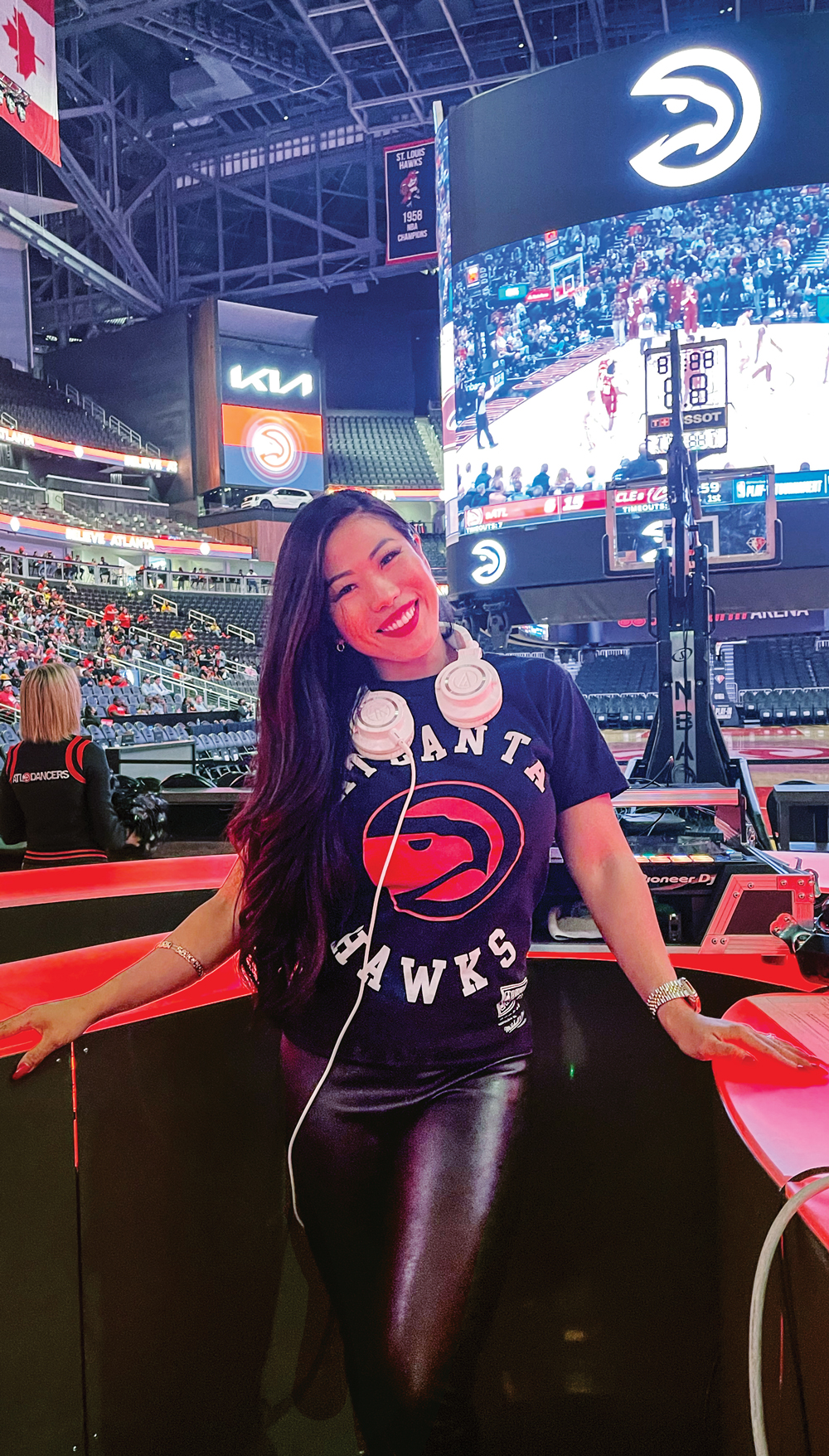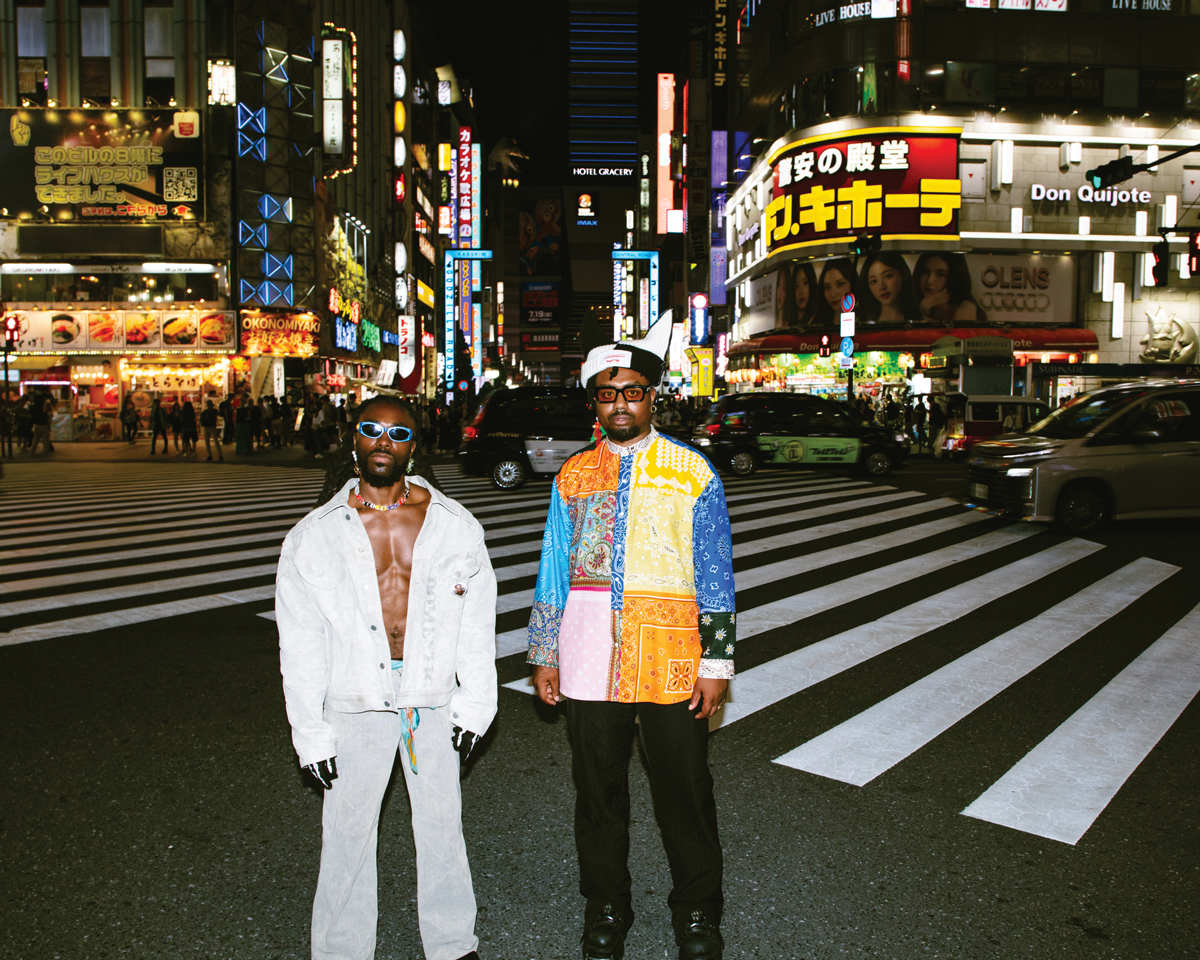
Photo provided by: Chikatakai
When Megan The Seatlion’s Viral 2024 hit “Mamushi” was released, listeners were surprised when Yuki Chiba’s Rapid Fire Japanese rap suddenly slashed through the speakers. Named after the poisonous Japanese snake, the song was the first introduction to Japan’s thriving hip-hop scene, which many Americans have had. However, the country’s hip-hop roots date back to the 1980s. In the 1980s, elements of American hip-hop culture (including breakdance, graffiti and fashion) inspired and inspired a new generation of fans and artists.
The dense English lyrics of rap music itself may not be accessible to many foreign listeners, but the broader culture of hip-hop has provided visual and aesthetic elements that overcome linguistic barriers and laid the foundation for its global appeal.
Today, Japan boasts the world’s second largest music market, worth over $2 billion. Even in a booming industry that is crowded with competitors from K-Pop to J-Pop, Atlanta artists continue to cultivate loyal fans in Japan, but Japan’s own cultural exports are inspirational to artists in the US rap capital.
“Atlanta Hawks model, dancer and DJ Chika Takakai is proud to be based in Atlanta, the hip-hop capital,” he said, studying dance, music and English, and later won the Hawks dance team spot. During her years as Atlantern, she witnessed firsthand how music shaped the city’s culture.
“Atlanta has a very unique sound that I’ve drawn to, like New York or California,” she says. “Not only is Ti’s southern draw, but also the lyrical range of Outkast with tones inspired by Yung Joc and Unk’s dance.” Takai’s love for hip-hop music began in her native Japan, when she was a young child dancing around Tokyo. From underground traps to top 40 hits, her interest in the Atlanta hip-hop scene ultimately led her to pursue a career as a professional DJ.
“All from Tokyo, it gave me a glimpse of how Atlanta’s culture was almost spot-on,” she recalls. In Japan, American hip-hop is said to be a source of deep charm and inspiration. “People don’t just enjoy hip hop as entertainment. They study it, embrace trends and build their own scenes inspired by it.”

Photo courtesy of Satin Heart
That cultural exchange moves in both directions. Earthgang, an innovative Atlanta-based rap group, recently praised the Japanese pop culture front and center at Tokyolanta. The perfect fantasy. After school, the duo grew up eating Japanese anime on the Manga Network, injected into visuals with their aesthetics The perfect fantasyfrom animated characters in music videos to martial arts references on social media reels. Earthgang even went to Tokyo to film some content.
Both the Atlanta and Japan scenes emerged from marginalized communities where music could become a powerful tool for dealing with sociopolitical issues. American rappers have long used the genre to express the struggles of the black community, but Japanese rappers have turned to hip-hop as a way to resist the country’s suitability. However, each scene has its own tradition and culture. This includes unique assumptions about who belongs.
She has been in Atlanta for years, but she feels that Takai is often seen as an outsider in the city’s hip-hop community, especially in the DJ scene, which has been dominated by black men. “This is where I bumped into the three regiments. Being an Asian, a woman, an immigrant is the perfect formula to be underestimated,” she says. “People sometimes assume I don’t understand variations. [of] Hip hop within genres and I can’t connect with music culturally. Because I’m not used to seeing them. ”
As intercultural collaborations continue between Atlanta and Japan, Takai is dedicated to bridging the gap between the country she came from and the city she currently calls her hometown. “There’s room for everyone,” she says of hip hop. “When you’re in a different place, know that you’re most remembered.”
This article was published in the March 2025 issue.
advertisement


